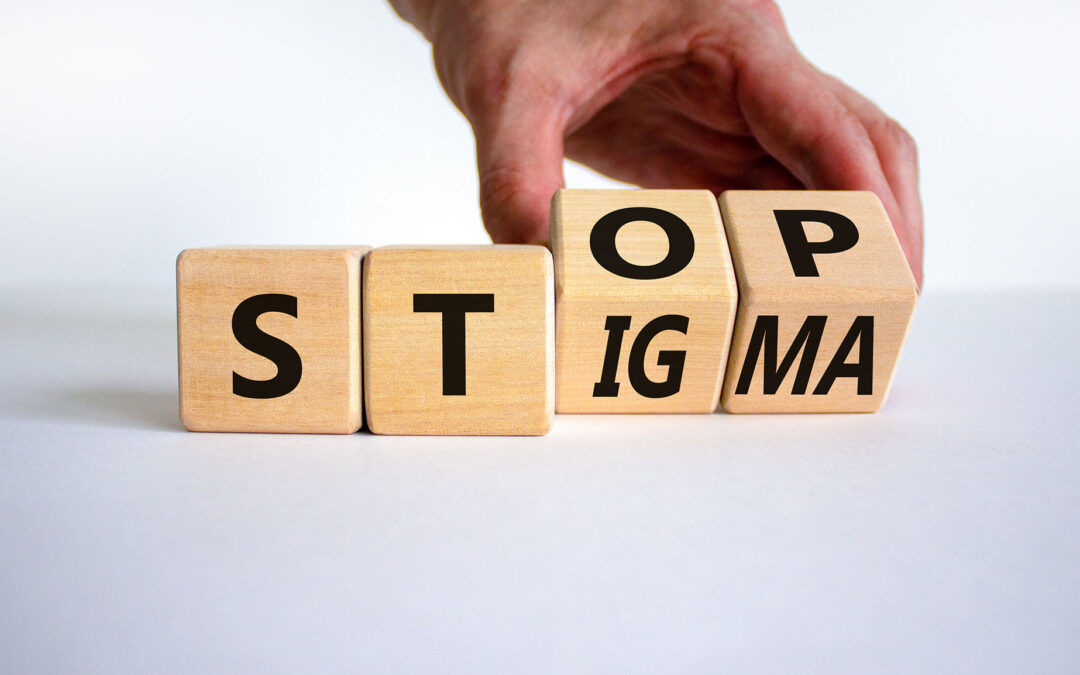May marks Mental Health Awareness Month nationwide, a time dedicated to amplifying the voices of mental health advocates and combating stigma. Stigma, rooted in negative attitudes and stereotypes, poses a significant barrier to accessing mental health care. It breeds discrimination, prejudice, and social exclusion, impeding individuals with mental illness from seeking help and participating fully in society.
Over the past decade we have witnessed a surge in awareness campaigns and resources, facilitated by media platforms allowing well-respected figures to openly discuss their struggles, fostering crucial dialogue. This dialogue helps people feel more comfortable seeking mental health care.
Amidst this progress, a pivotal question arises: Does mental health stigma still significantly affect teens today?
A recent study by The JED Foundation (JED) reveals stigma isn’t the primary concern among teens when it comes to seeking mental health support. While stigma may not be at the top of the list, other barriers persist. Many adolescents hesitate to seek help due to fears of being misunderstood, burdening others, or discomfort in discussing emotions.
The study found that stigma remains a significant obstacle, particularly for marginalized groups such as Asian, Hispanic/Latinx, Black/African American, and LGBTQ+ teens. This underlying stigma amplifies fears of being misunderstood and burdensome when expressing emotions.
The prevalence of mental health challenges among teens and young adults continues to rise, with suicide ranking as the second leading cause of death among adolescents and young adults aged 15-24 in California. Additionally, 12% of 7th, 9th, and 11th graders in South Orange County report having seriously considered suicide over the past year (California Healthy Kids Survey, 2023). Addressing these concerns is imperative to ensure youth receive the necessary support.
The California Department of Health and the Center at Sierra Health Foundation have released a Youth Suicide Prevention Media and Outreach Campaign titled, “Never a Bother”. This campaign aims to address teens’ top concerns, encouraging youth to reach out when experiencing negative mental health feelings. Their website promotes help-seeking behavior with messages like, “Sometimes you may feel like the world isn’t listening and no one understands. But you are not alone. Friends and trained pros can reconnect you with your reasons to keep going and show you ways to cope with difficult days.”
While teens may not possess the expertise to provide the professional support that a young person might need, sharing resources and stories of resilience, as showcased in the “Never a Bother” campaign, can instill hope and encourage peer to peer conversations that increase a young person’s wellbeing. In addition, it is essential for teens to feel empowered to confide in supportive adults who can offer non-judgmental listening and maintain confidentiality, while referring that young person to the appropriate mental health resources when necessary.
JED’s CEO stated, “Each new generation forms their own perspectives on mental health and where they can turn for support. It’s important for us to focus on young people today and help them overcome the barriers they face. Supportive adults can better understand and enable teens to share their feelings and access the help they need.”
If you’re an adult with a youth in your life, take this month as an opportunity to initiate conversations about their wellbeing. Beyond Mental Health Awareness Month, continue to educate yourself about mental health and support those around you by joining the Wellness & Prevention Center’s monthly newsletter, taking a Mental Health First Aid Course, or simply expressing care.
Lastly, if you or someone you know is contemplating suicide, please reach out to the suicide prevention hotline at 988 by phone or text. This line provides 24/7 support for individuals seeking help.
You can download the full report from the JED Foundation at https://jedfoundation.org/unraveling-the-stigma-report/ and access the Never a Bother campaign at https://neverabother.org/. If you have a creative way to help this campaign reach local teens reach out to lauren@wpc-oc.org to collaborate.

